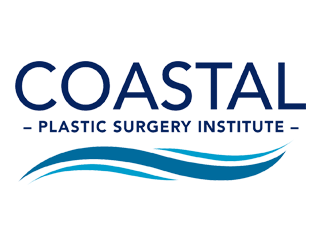Breast reconstruction is achieved through several plastic surgery techniques that attempt to restore a breast to near normal shape, appearance and size following mastectomy. Although breast reconstruction can rebuild your breast, the results are highly variable:
- A reconstructed breast will not have the same sensation and feel as the breast it replaces.
- Visible incision lines will always be present on the breast, whether from reconstruction or mastectomy.
- Certain surgical techniques will leave incision lines at the donor site, commonly located in less exposed areas of the body such as the back, abdomen or buttocks.
Breast Reconstruction Techniques
Implant-Based Reconstruction
The most common way to reconstruct the breast after cancer is with the placement of a saline or silicone implant. In some cases, the implant can be placed immediately at the time of mastectomy; in other cases, a temporary tissue expander is needed to create more room in the chest wall to hold and support an implant.
Flap-Based Reconstruction
An alternative way to reconstruct the breast is using the patient’s own tissue, transferred from another area of her body such as the abdomen or back. This is a good option for women who do not want to put themselves at risk of implant failure or have an artificial device permanently implanted in their bodies.
Sometimes a combination of implant and flap is used to reconstruct the breast.
Fat Grafting Breast Reconstruction
Fat grafting — the process of taking fat tissue from another area of the body and injecting it into the breasts — can be used to reconstruct a breast after cancer, or to correct asymmetries or deformities after reconstruction.
If only one breast is affected, it alone may be reconstructed. In addition, a breast lift, breast reduction or breast augmentation may be recommended for the opposite breast to make the breasts more symmetrical.
Who Is an Ideal Candidate?
Nearly every woman is a candidate for implant-based reconstruction.
To qualify for flap-based reconstruction or fat transfer, women must have sufficient “donor” tissue to use to reconstruct the breast.
Frequently Asked Questions about Breast Reconstruction
What Types of Implants are Used?
Saline and silicone.
What are the Available Payment and Financing Options?
The team at Coastal Plastic Surgery Institute would be happy to discuss breast reconstruction cost, financing options and insurance coverage. Contact us today.
What Factors Can Affect the Choice of Breast Reconstruction Method?
- Your lifestyle, body shape and anatomy
- Your age and health
- Your history of past surgeries
- The availability of “donor” tissue that could be used to recreate the breast
- Whether radiation has affected the remaining breast tissue
Does Breast Reconstruction Affect the Ability to Check for Breast Cancer Recurrence?
According to the National Cancer Institute, breast reconstruction does not interfere with the ability to check for breast cancer recurrence.
If you have implants, it is important to tell the radiology technician about the implant prior to the procedure, as certain measures may be taken to improve the accuracy of the test and prevent damage to the implant.
How Can I Ensure the Best Results from Breast Reconstruction?
To ensure that you are happy with your reconstructed breasts, you must work with an experienced, qualified surgeon like Dr. McAllister, who is widely respected for his expertise in breast reconstruction. Ask him lots of questions about what you can expect after surgery and look at photos of his previous breast reconstruction patients.
Are There Any Risks?
Risks of breast reconstruction can include infection, bleeding, poor wound healing and adverse reaction to anesthesia. Implant-based reconstruction risks include capsular contracture and implant rupture. Flap-based reconstruction risks include loss of sensation at the donor and reconstruction site.
How Should I Prepare for Breast Reconstruction?
If you are a smoker, it is recommended that you stop smoking well in advance of the surgery. Smoking can affect your ability to heal.
Certain medications that increase the risk of bleeding such as aspirin, non-steroidal anti-inflammatory medications, and some vitamins/homeopathic regimens should be discontinued prior to any elective surgery.
Dr. McAllister may also ask you to go for lab testing or a medical evaluation.
Can Previous Breast Reconstruction be Corrected Here?
Yes. If you are unsatisfied with your previous breast reconstruction results, Dr. McAllister can work with you to create a plan that addresses your concerns.
Learn More about Breast Reconstruction
For more information about breast reconstruction after cancer, please request a consultation at Coastal Plastic Surgery Institute today.
